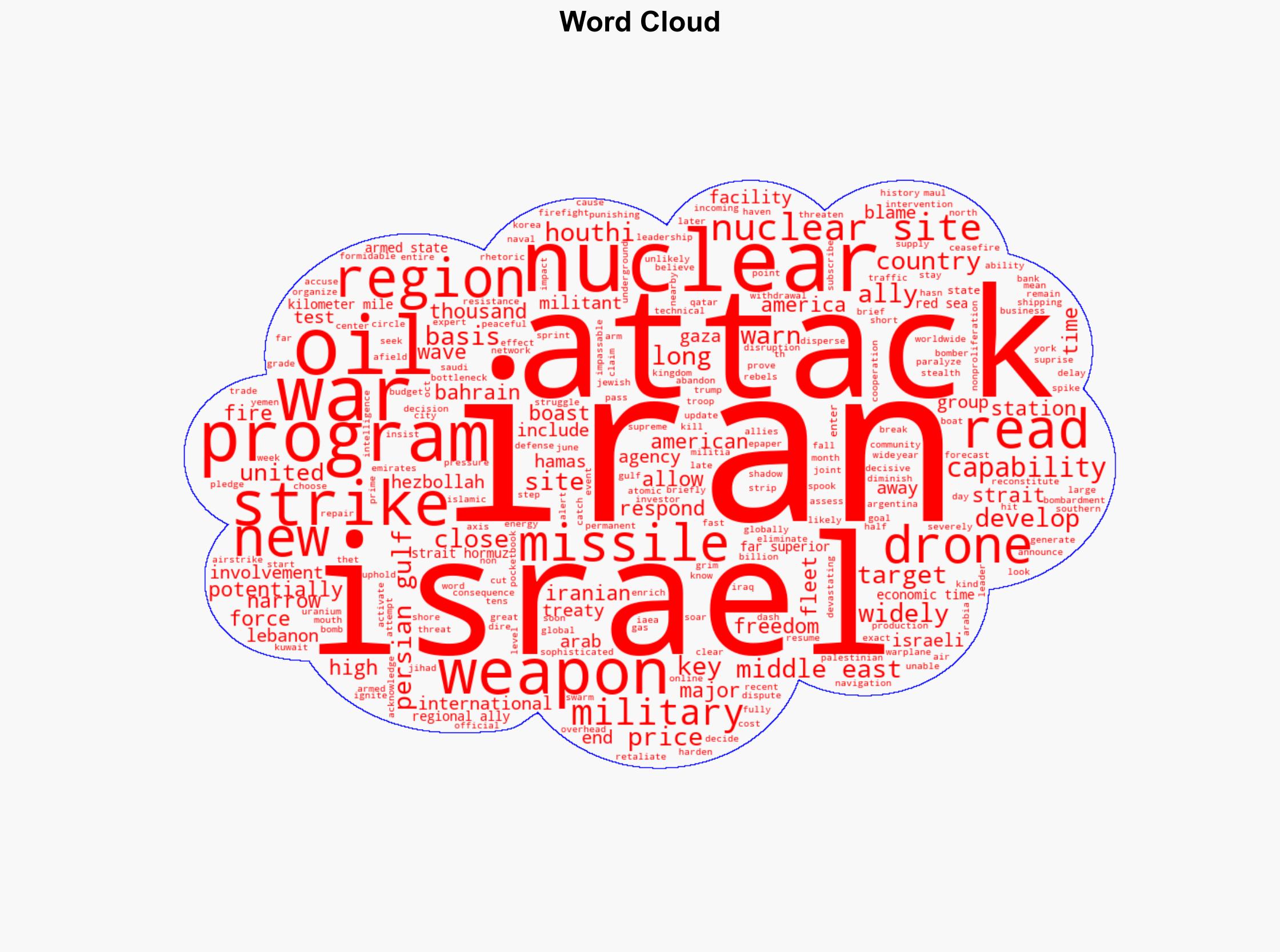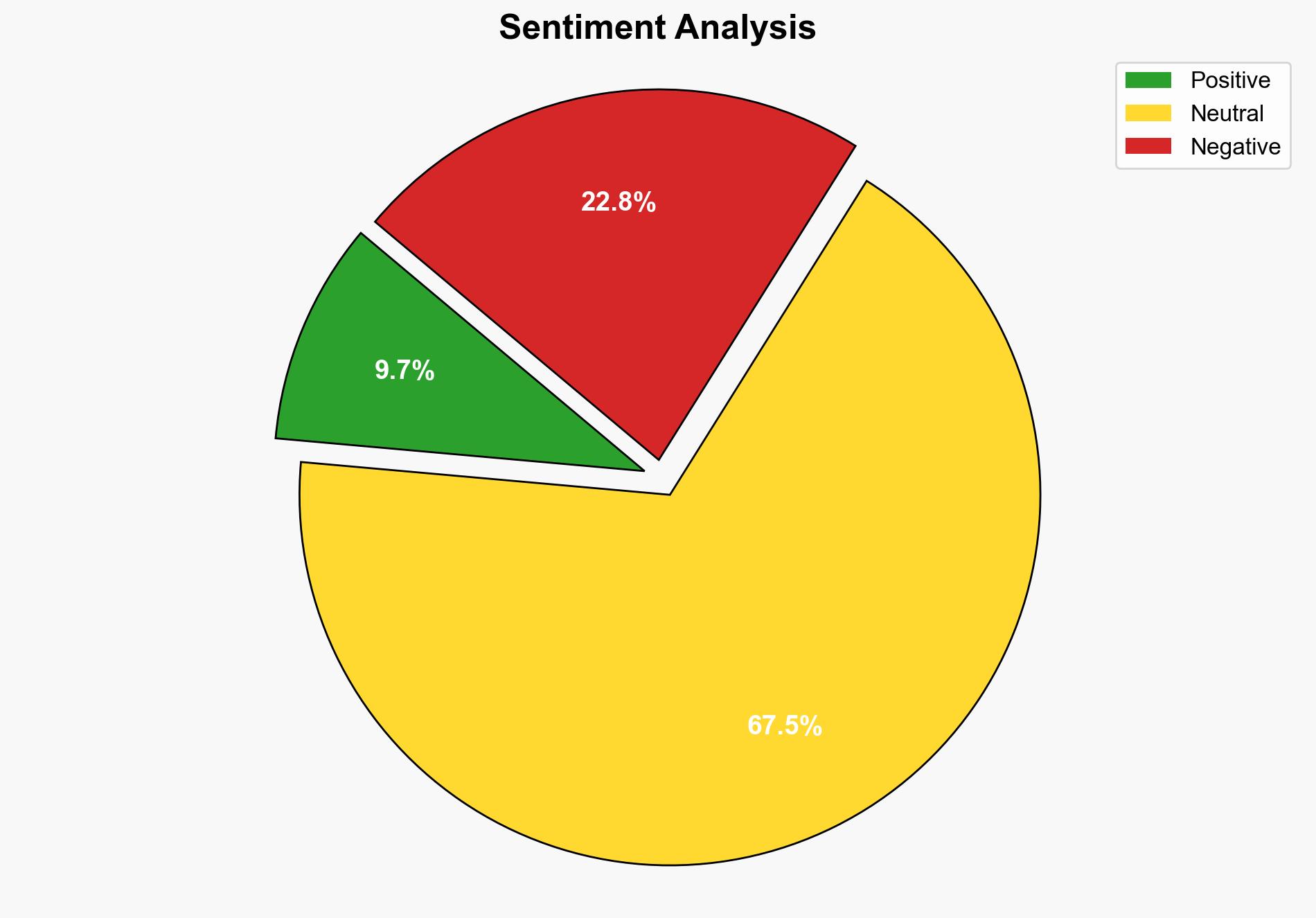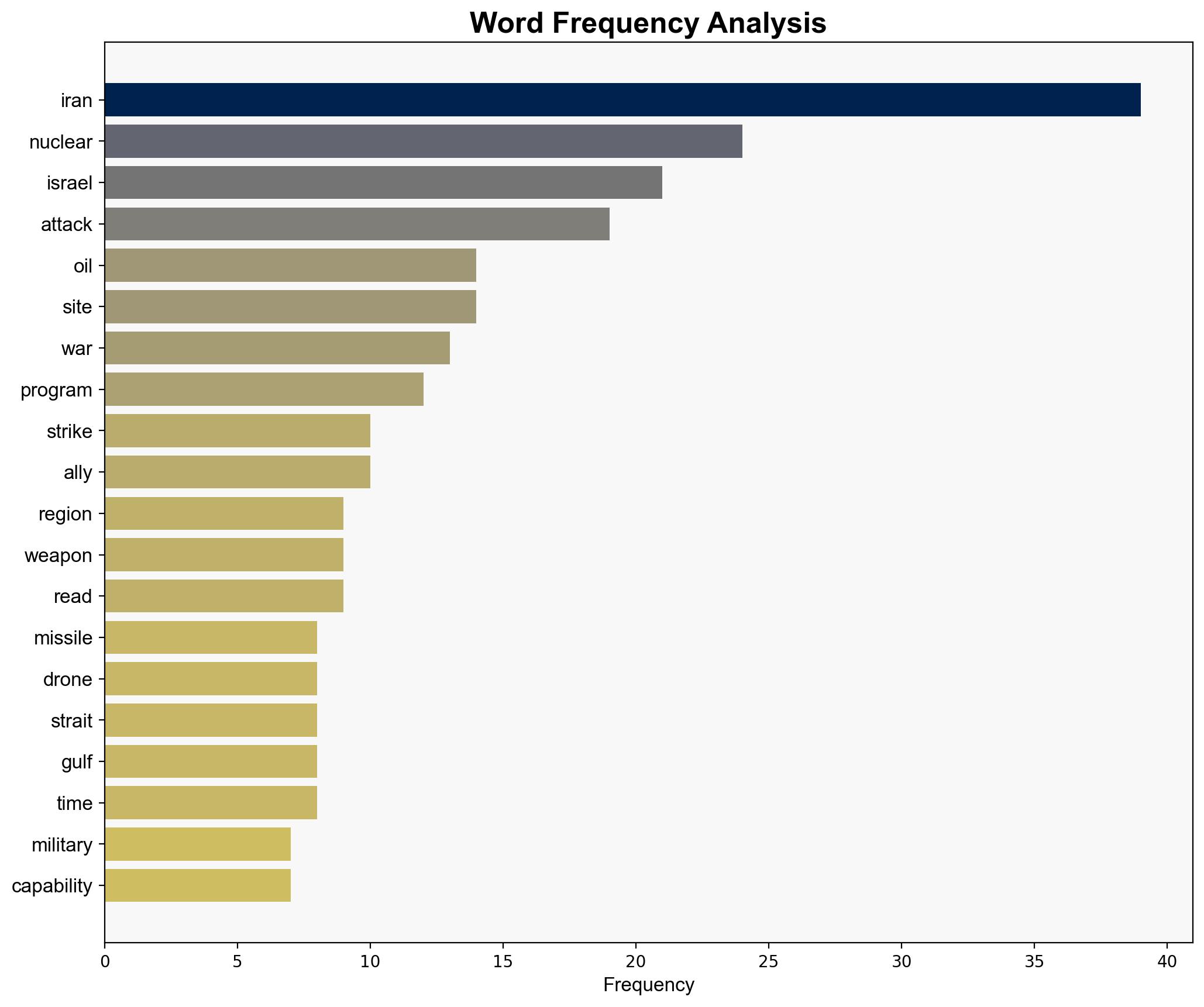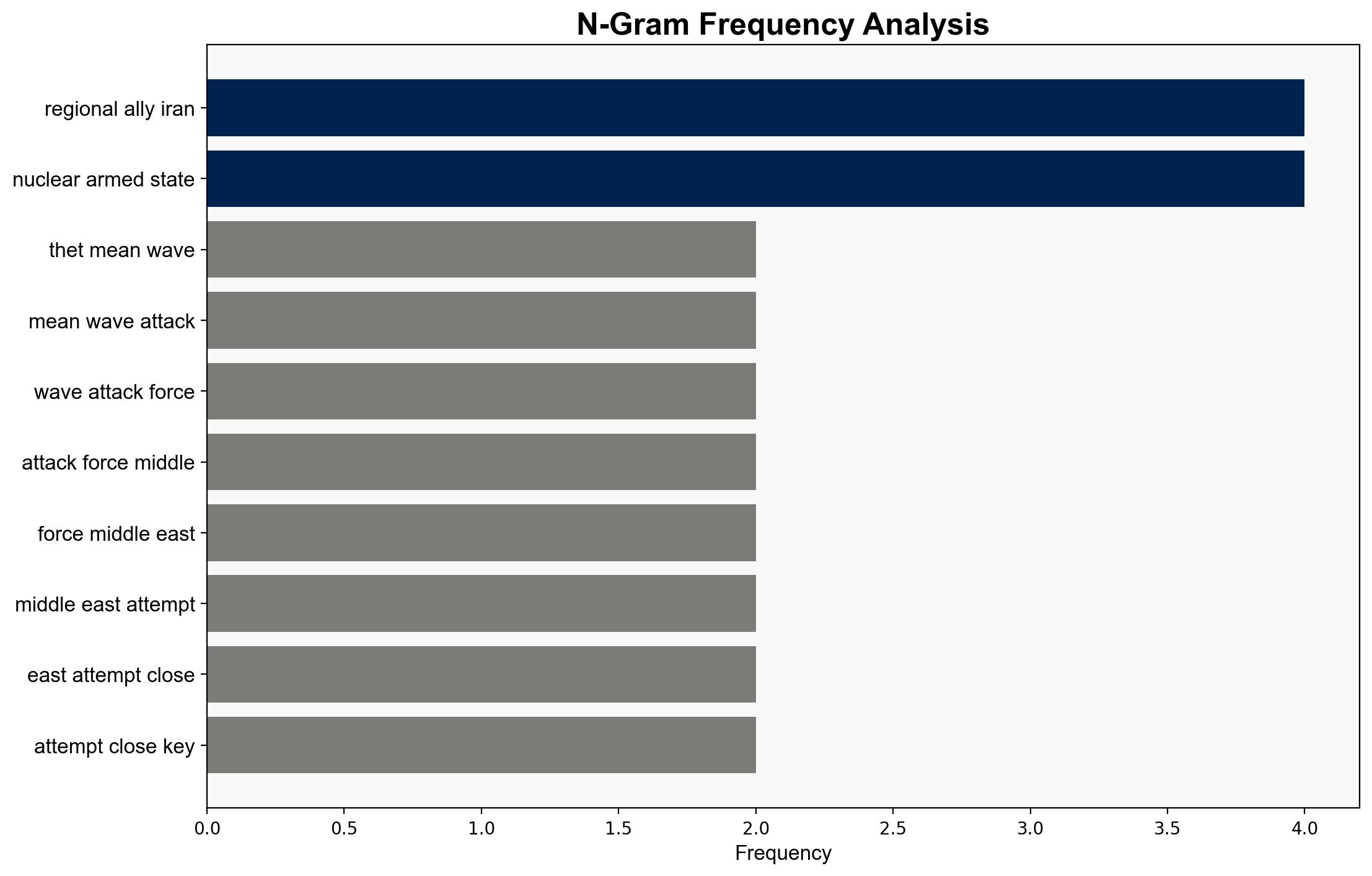Here’s how Iran could retaliate after US strikes on its nuclear program – The Times of India
Published on: 2025-06-22
Intelligence Report: Here’s how Iran could retaliate after US strikes on its nuclear program – The Times of India
1. BLUF (Bottom Line Up Front)
Iran possesses a multi-tiered military capability designed to deter attacks, particularly from the United States and Israel. In response to potential US strikes on its nuclear program, Iran could retaliate by targeting key regional allies, disrupting global oil supply routes, and leveraging its network of regional proxies. Strategic recommendations include enhancing regional defense postures and preparing for potential disruptions in global oil markets.
2. Detailed Analysis
The following structured analytic techniques have been applied to ensure methodological consistency:
ACH 2.0
Iran’s strategic intentions likely include deterring further military actions and demonstrating regional influence. Hypothesis testing suggests a high probability of asymmetric warfare tactics.
Indicators Development
Monitoring increased digital propaganda and shifts in travel patterns among known operatives could indicate imminent operational planning.
Narrative Pattern Analysis
Iranian narratives emphasize resistance and retaliation, potentially inciting regional proxies to act against US and Israeli interests.
Network Influence Mapping
Iran’s influence extends through a network of regional allies, including groups in Yemen, Lebanon, and Iraq, which could be mobilized for retaliatory actions.
3. Implications and Strategic Risks
Potential Iranian retaliation could lead to significant disruptions in the Strait of Hormuz, affecting global oil prices and economic stability. Military engagements could escalate, drawing in regional and global powers, and increasing the risk of broader conflict. Cyber threats targeting critical infrastructure in the US and allied nations could also emerge.
4. Recommendations and Outlook
- Enhance maritime security in the Strait of Hormuz to ensure freedom of navigation and mitigate economic impacts.
- Strengthen regional defense alliances and intelligence-sharing frameworks to anticipate and counter asymmetric threats.
- Scenario-based projections:
- Best Case: Diplomatic resolutions prevent escalation, maintaining regional stability.
- Worst Case: Full-scale regional conflict disrupts global oil supply and economic stability.
- Most Likely: Limited skirmishes and proxy engagements with temporary disruptions in oil markets.
5. Key Individuals and Entities
Supreme Leader Ali Khamenei, regional proxies such as Hezbollah and Houthi rebels, and key Iranian military leaders are central to potential retaliatory strategies.
6. Thematic Tags
national security threats, cybersecurity, counter-terrorism, regional focus





